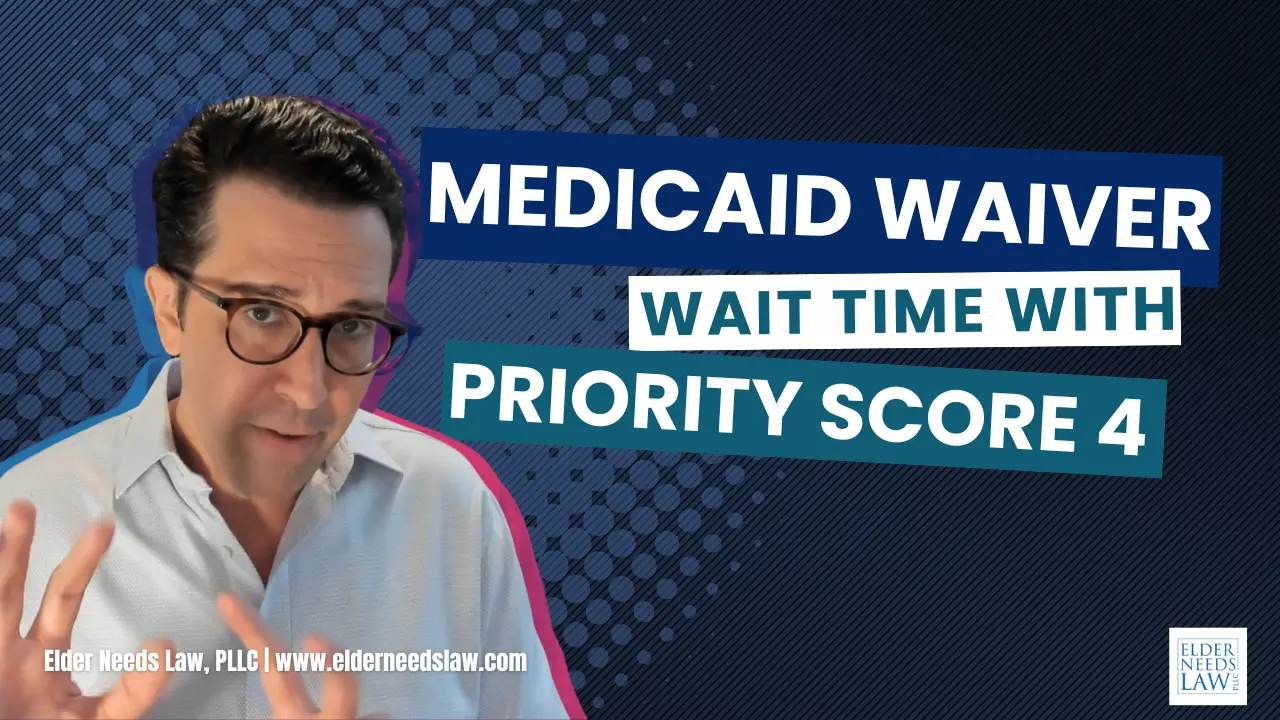Understanding Priority Scores on Florida's Medicaid Waiver Waitlist: What a Score of 4 Really Means

If you're considering the Medicaid waiver program in Florida to help cover assisted living or home health care costs, you've probably heard about priority scores. These numbers determine how long you'll wait before receiving services—and the difference between a score of 4 and 5 can mean months or even years.
What Is the Medicaid Waiver Program?
Many people don't realize that Medicaid isn't just one program—it's actually an umbrella term covering multiple programs designed for different situations. The waiver program specifically helps pay for:
- A portion of assisted living facility bills
- Home health care services
It's important to note that this is different from the program that covers nursing facility care. If you're hoping to stay in your home longer or need assistance in an assisted living setting, the waiver program is what you're looking for.
The Waitlist Process
Before you can even apply for the waiver program, you must go through a waitlist managed by your local Area Agency on Aging or Aging and Disability Resource Center. Every county in Florida is assigned to one of these agencies, and they handle the waitlist on behalf of that county.
The process works like this:
- You contact your local agency
- They schedule an interview with you
- Based on your answers to their questions, you receive a priority score ranging from 1 to 5 (with 6 and 7 reserved for crisis situations affecting less than 1% of applicants)
- Your score determines your place in line
Breaking Down the Priority Scores
Score of 5: This is the highest practical priority score most people can receive, and it correlates with the shortest wait time. Even with a 5, you won't bypass the waitlist entirely, but you'll typically wait between 2 to 5 months, depending on your county.
Score of 4: This is where things get tricky. The wait time for a score of 4 varies dramatically by county. In some counties, having a 4 might as well be a 0—you could be waiting indefinitely. In other counties, you're looking at roughly a year to a year and a half.
Scores of 1-3: Many people with these scores find themselves on the waitlist for a year, two years, three years, or longer.
Why the Screening Interview Matters So Much
The interview that determines your priority score involves more than 100 questions. Here's the challenge: these questions aren't always intuitive or straightforward. Many applicants answer in ways that are honest but counterproductive—resulting in a lower priority score and a much longer wait than necessary.
The truth is, there's often more than one way to accurately represent your situation. The way you frame your needs and circumstances can make a significant difference in your score without fabricating or exaggerating anything.
How Legal Guidance Can Help
A Florida attorney who focuses on Medicaid planning can provide valuable assistance during this process. They can:
- Coach you on how to answer screening questions effectively and accurately
- Help you present your situation in the most favorable light
- Ensure you're not inadvertently hurting your chances with poorly worded responses
- Guide you on when to reengage with the waitlist if your circumstances change
The goal isn't to make things up or invent needs that don't exist. It's about making sure your genuine needs are properly communicated and understood during the screening process.
Beyond the Waitlist: Asset Protection
Once you've secured your spot on the waitlist, there's another piece of the puzzle: protecting your assets while qualifying for Medicaid. Florida has specific rules about what assets you can keep and how recent financial transactions are reviewed. An attorney can help you maneuver your assets in a Medicaid-compliant manner, ensuring you can receive the benefits you need while preserving as much as legally possible for yourself and your family.
Getting Started
If you're anywhere in Florida and need assistance with:
- The Medicaid waiver program application
- Achieving a higher priority score on the waitlist
- Protecting your assets while qualifying for benefits
- Planning for assisted living or home health care costs
Professional legal guidance can make the difference between waiting months versus years for the care you need.
Additional Resources
For more information about Medicaid planning in Florida, visit:
- Elder Needs Law: elderneedslaw.com
- Medicaid Planning Resources: medicaidplanninglawyer.com
You can also check out the book "How Medicaid Can Pay for Some of Your Long-Term Care Expenses" for a comprehensive guide to Florida Medicaid planning.
The information in this article is for educational purposes only and should not be considered legal advice. Medicaid rules and waitlist times vary by county and change frequently. Consult with a Florida attorney for guidance specific to your situation.







